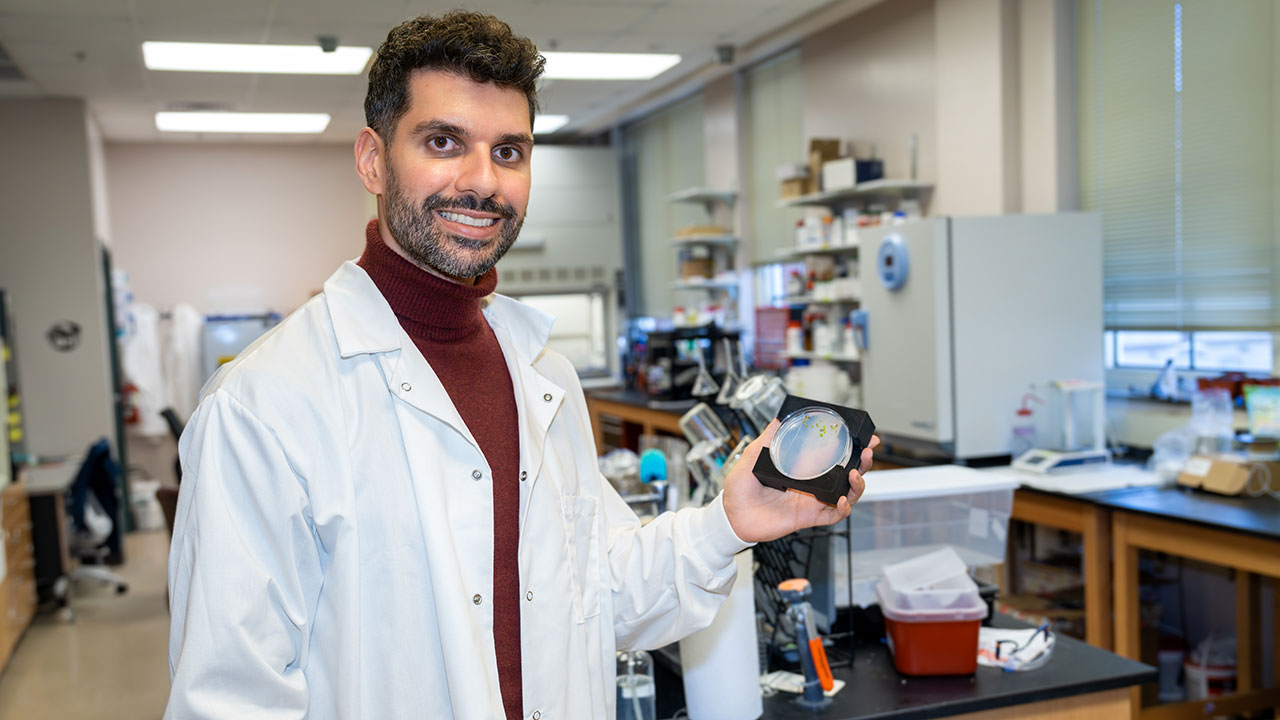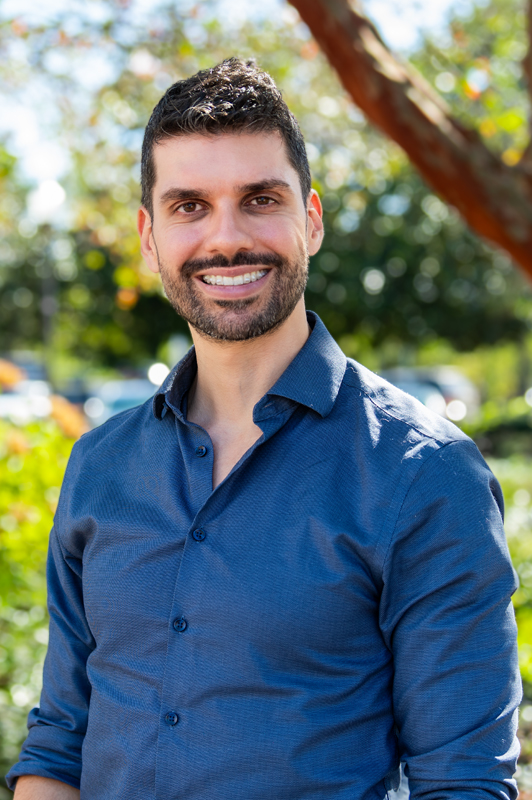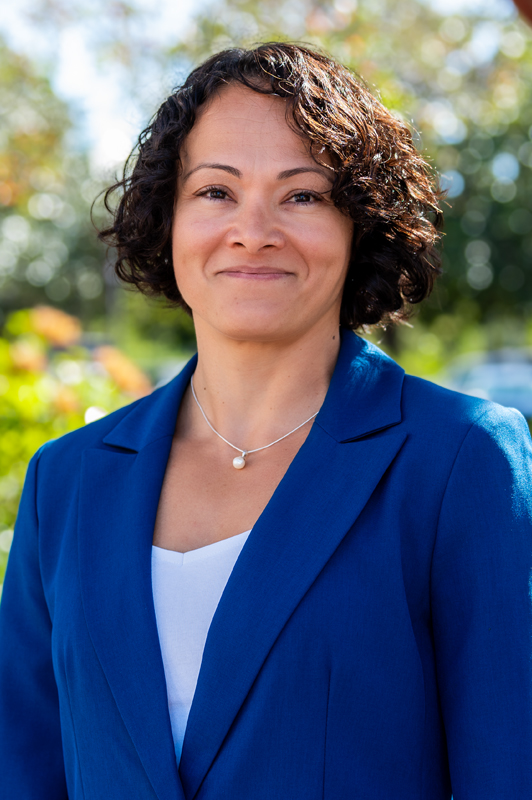NSF CAREER Award-winning study investigates how sound can boost plant pollination and crop yields
Published: Feb 14, 2025 10:00 AM
By Joe McAdory
Can plants “hear” the buzzing of bees? If so, how do their hidden “eardrums” function?
Jean-François Louf, an assistant professor in the Department of Chemical Engineering, is set to find out. His research, funded by a prestigious $843,000 National Science Foundation CAREER Award, investigates how flowers detect and respond to the sound of pollinators — potentially increasing nectar sugar concentration and improving crop yields.
Why does this matter?
Declining bee populations have significantly reduced pollination, affecting both biodiversity and global food production. Scientists and farmers have long sought alternative ways to maintain crop yields in the face of this crisis. Louf’s research takes a novel approach: using sound to stimulate plants and enhance their ability to attract pollinators.

“If we can understand how plants respond to specific acoustic frequencies, we could develop new agricultural techniques that optimize nectar production and improve pollination efficiency,” Louf said. “This could help breeders engineer crops to be more responsive to specific pollinators, ultimately contributing to improved global food security.”
Beyond potential applications in agriculture, his research will also uncover fundamental biological processes — shedding light on how plants integrate mechanical stimuli into cellular responses.
From Buzz to Biochemistry: How Plants Respond to Sound
Louf’s project, “Mechanisms of Acoustic Signal Processing for Increased Nectar Sugar Concentration in Flowers,” examines how plants translate mechanical vibrations into biochemical changes. His team will investigate how plant cell walls and membranes respond to sound waves, using cutting-edge techniques such as:
- Atomic force spectroscopy and confocal microscopy: Observing plant cell vibrations at nano-scale precision.
- Fluorescent SWEET9 proteins: Tracking sugar movement in nectar production.
- Glucose and calcium Förster Resonance Energy Transfer (FRET) nanosensors: Visualizing how plants metabolize sugar in real time.
- Fluorescence recovery after photobleaching: Studying how molecules move within plant cells in response to acoustic stimulation.
The NSF CAREER Award is one of the National Science Foundation’s most competitive grants, recognizing early-career faculty with the potential to lead transformative research and serve as academic role models.
“Winning this feels amazing because it shows that the scientific community believes in my research and its potential impact,” Louf said. “It’s validation that these ideas are worth pursuing, and it provides the resources to support my students and continue this work for the next several years.”
Louf is the department’s second NSF CAREER Award winner this semester and the third in Auburn Engineering this year, joining Assistant Professors Michael Howard (chemical engineering) and Mehdi Sadi (electrical and computer engineering).
“Dr. Louf’s award-winning research not only addresses a significant gap in our understanding of plant-pollinator interactions but also has the potential to provide innovative solutions to critical global challenges,” said Department of Chemical Engineering Chair Selen Cremaschi. “By exploring the physical mechanisms behind plants' perception and response to acoustic signals, Dr. Louf is paving the way for advancements in agricultural resilience and food security. We are incredibly proud of his dedication and contributions to the field, and we look forward to the impactful outcomes of this research.”
Through his research, Louf hopes to bridge the gap between plant science, engineering, and agriculture — opening the door for new, sustainable ways to enhance pollination and improve food security worldwide.
For the educational component of the grant, Louf will create an elective course on plant biomechanics for Auburn University students and engage younger students with educational comic books in English and Spanish about plants' unique abilities.
“Drawing on my experience as a middle school teacher prior to joining Auburn University and mentor at the Alabama School of Math and Science, I will conduct plant biomechanics activities twice a semester and develop outreach programs with teachers during the summer,” he said. “My goal is to inspire teenagers' interest in STEM, provide educational opportunities for low-income students, and increase STEM literacy in Alabama.”
The Future of “Talking” to Plants
Could farmers one day “whisper” to their crops with carefully tuned sound waves? Could sound-based agricultural techniques help compensate for declining pollinators? Louf’s research is a first step toward answering these questions.
As he and his team work to decode nature’s hidden frequencies, he said one thing is clear, “Plants may not have ears, but they’re always listening.”
Media Contact: , jem0040@auburn.edu, 334.844.3447
Jean-Francois Louf is the Department of Chemical Engineering's second National Science Foundation CAREER Award recipient this semester.



